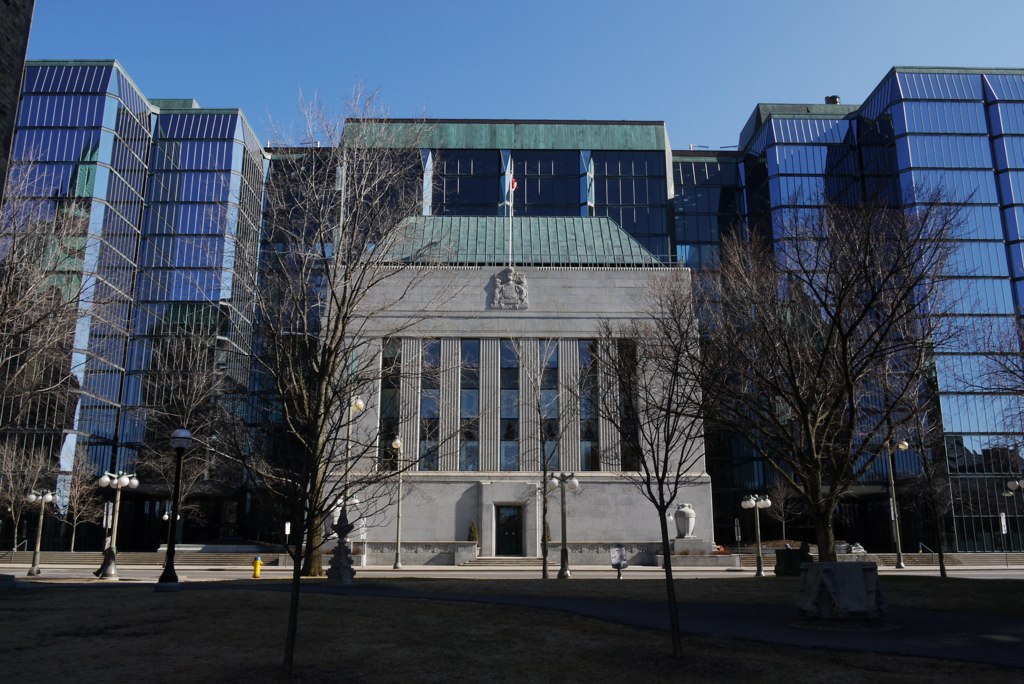
OTTAWA — A top Bank of Canada official says with the economy already caught in the middle of the U.S.-China trade war, further escalation of global trade conflicts is a “major preoccupation” for policy-makers.
Senior deputy governor Carolyn Wilkins told a Calgary audience Thursday that the clash between Canada’s top trading partners was a main point of discussion ahead of the central bank’s decision this week to leave its interest rate unchanged.
“China and the United States have escalated their dispute, and Canada has been caught in the crossfire,” Wilkins said as she addressed the Calgary Chamber of Commerce.
Weighing international trade risks against signs of an improving domestic economy, governor Stephen Poloz held the bank’s key policy rate at 1.75 per cent Wednesday. At a level that’s currently below inflation, Wilkins told reporters after her speech the interest-rate setting was “pretty darn accommodative.”
The bank says there’s growing evidence the Canadian economy has been strengthening since a sharp winter slowdown, a slump the bank has predicted was only temporary.
Overall, Wilkins said Thursday that Canada’s economic performance has been “relatively solid” and she expected it to gain speed throughout the year.
The international trade picture, however, could threaten a Canadian rebound from a couple of weak quarters.
In addition to the U.S.-China trade conflict, Wilkins listed disruptions such as Beijing’s new restrictions on some Canadian agricultural products. A diplomatic conflict has intensified in recent months, leading China to reject shipments of some Canadian goods, including canola and pork.
The central bank is also monitoring the possibility of a trade feud between the U.S. and the European Union. U.S. President Donald Trump has threatened to apply tariffs on autos from the EU.
“If some of these disputes were to be resolved, that would provide a welcome boost to the Canadian and global economies,” Wilkins said.
“But if the disputes were to worsen and become long lasting, the outlook would be quite different… Obviously, this remains a major preoccupation for us.”
The uncertain trade environment, she said, has already taken a toll by hurting business sentiment and holding back investment in many countries, including Canada.
If conditions deteriorate further, economic demand will fall, business investment will slow and companies will be forced to wrestle with supply-chain disruptions, she said.
“We’re going to see businesses changing their behaviour if they start to think that this is something that isn’t temporary.”
Wilkins did note that Canada’s trade picture has seen positives, such as the U.S. move to drop steel and aluminum tariffs. Their removal is expected to improve the ratification chances for the updated North American free trade agreement.
On Wednesday, the bank reported recent economic indicators for Canada have been unexpectedly robust.
The central bank said data has shown the oil sector beginning to recover, the national housing market stabilizing and still-strong job growth. The numbers, it added, also point to growth in consumer spending, exports and business investment.
Many experts expect the central bank to leave its key interest rate untouched until at least late in the year and perhaps longer. Some have predicted a rate cut could come before the next hike.
Ahead of the July rate announcement, the governing council will focus its attention on developments in household spending, oil markets and global trade. It has been cautious with the interest rate due to the accumulation of high levels of household debt, which has built up after years of very low borrowing costs.